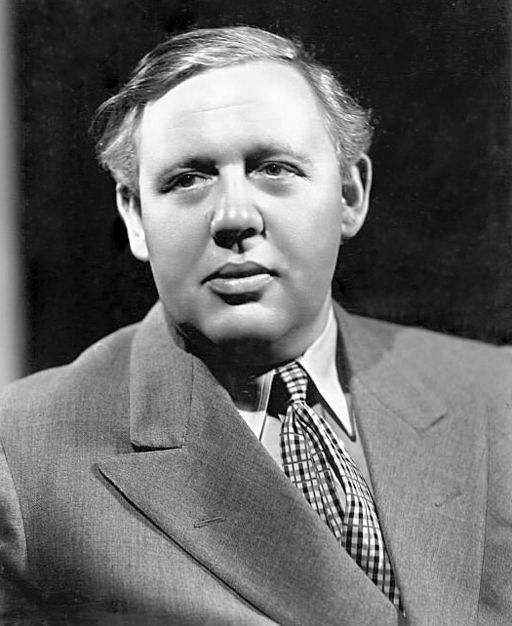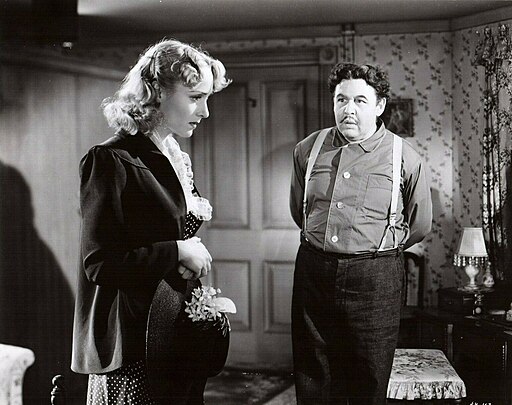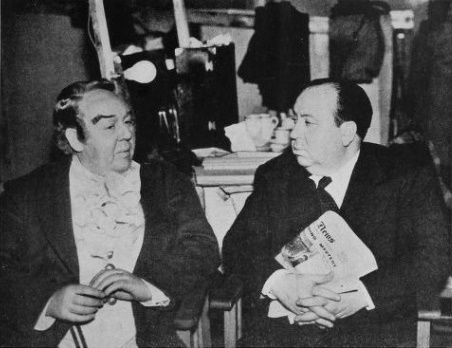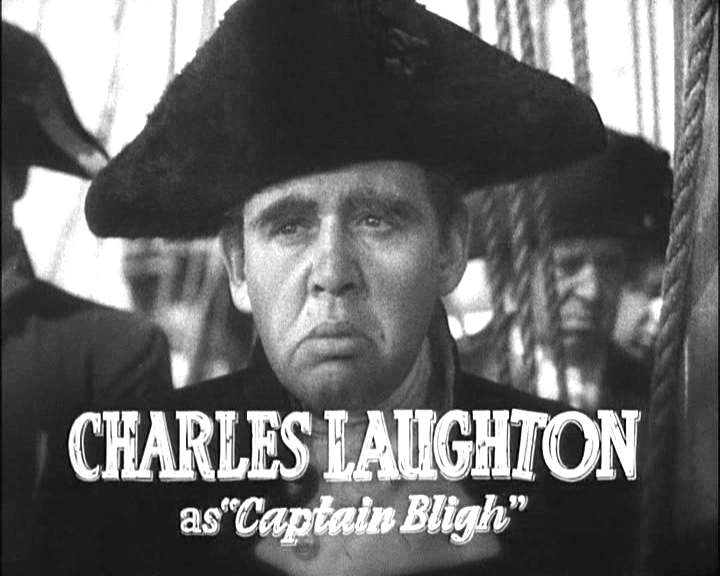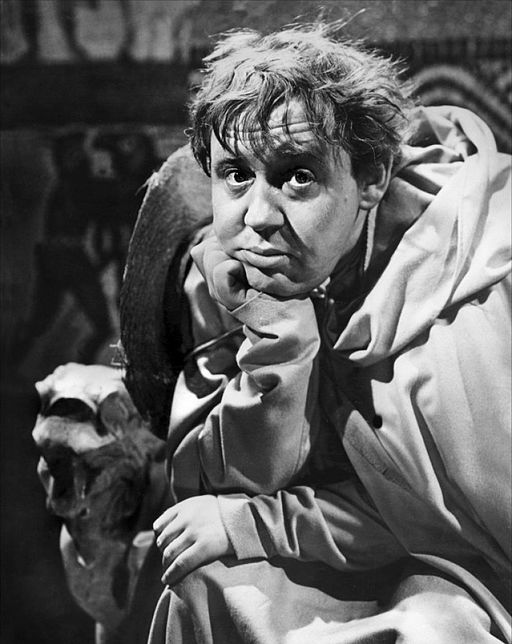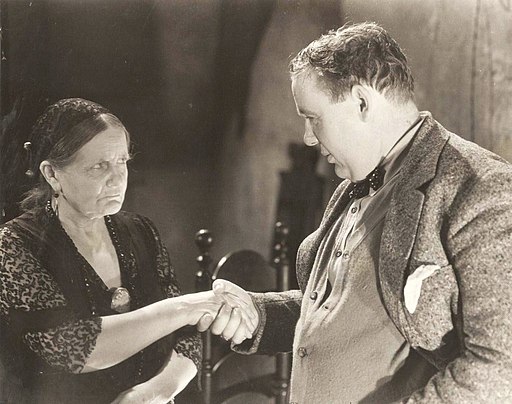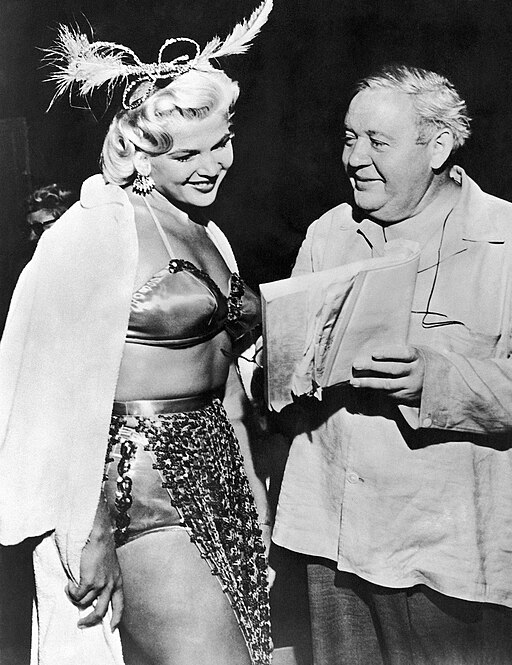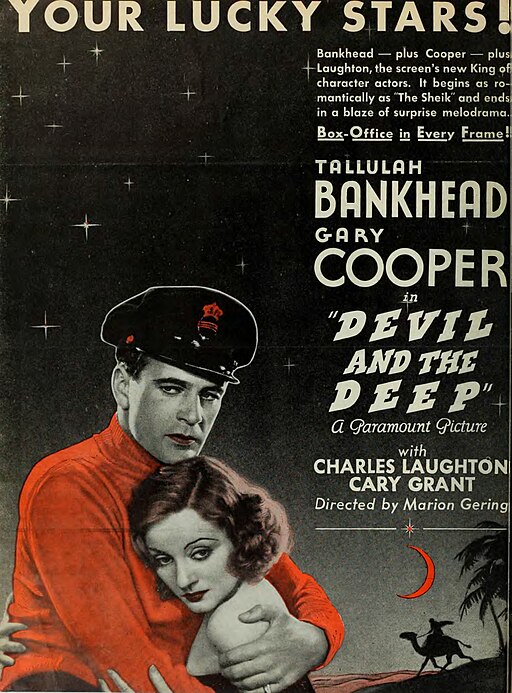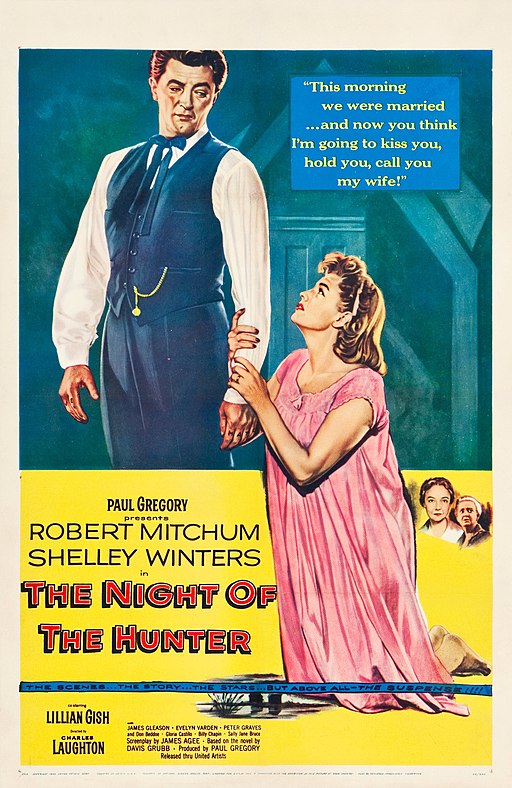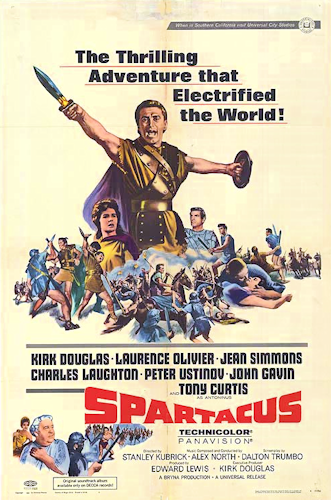Charles Laughton
back| Full Name | Charles Laughton |
| Stage Name | Charles Laughton |
| Born | July 1, 1899 |
| Birthplace | Scarborough, North Riding of Yorkshire, England |
| Died | December 15, 1962 |
| Buried | Forest Lawn Memorial Park, Hollywood Hills, California, United States |
| Married to | Elsa Lanchester (m. 1929–1962) |
| Children | None |
| Notable films | The Private Life of Henry VIII (1933) - Mutiny on the Bounty (1935) - The Hunchback of Notre Dame (1939) - Witness for the Prosecution (1957) - Spartacus (1960) |
Charles Laughton
The Chameleon of Character Acting
Charles Laughton (1899-1962) was a distinguished British actor and director, renowned for his profound impact on stage and screen.
Born in Scarborough, England, Laughton's acting career began in London theaters, transitioning to Hollywood with standout roles in "The Old Dark House" (1932) and "The Private Life of Henry VIII" (1933), the latter earning him an Oscar for Best Actor.
His versatility shone through in varied roles, notably as Captain Bligh in "Mutiny on the Bounty" (1935) and Quasimodo in "The Hunchback of Notre Dame" (1939). Laughton's sole directorial venture, "The Night of the Hunter" (1955), later gained critical acclaim.
Married to actress Elsa Lanchester, he was known for his commanding presence and ability to portray complex characters. Laughton's legacy endures through his contributions to both British and American cinema, leaving an indelible mark on the acting world.
Related
Charles Laughton
Biography and Analysis of his Movie Career
Early Life
Charles Laughton was born in Scarborough, England, to Robert Laughton, a hotel keeper, and his wife Eliza. His initial education was at Stonyhurst College, followed by studies at the Royal Academy of Dramatic Art in London.
Career
Laughton's career began on the stage in London, and his first major success was in the play "The Government Inspector" in 1926. He soon transitioned to films, making his Hollywood debut in 1932 with "The Old Dark House."
His portrayal of King Henry VIII in "The Private Life of Henry VIII" (1933) won him an Academy Award for Best Actor. This role marked his arrival as a major movie star. Laughton was known for his versatility, playing a wide range of characters, from tyrannical monarchs to sympathetic everymen.
He continued to work in both British and American films throughout the 1930s and 1940s. Notable performances included Captain Bligh in "Mutiny on the Bounty" (1935), the title role in "The Hunchback of Notre Dame" (1939), and Sir Wilfrid Robarts in "Witness for the Prosecution" (1957).
Directorial Work
Laughton's only directorial effort was "The Night of the Hunter" (1955), a critically acclaimed film that is now regarded as a classic. Despite its initial commercial failure, the film has since gained recognition for its artistic merit.
Personal Life
Laughton was married to actress Elsa Lanchester, best known for her role as the Bride in "The Bride of Frankenstein." Their marriage was unconventional, as Laughton was reportedly gay, and their relationship was more of a deep friendship and professional partnership.
Death and Legacy
Laughton passed away from renal cancer in 1962. His contribution to the arts was significant, with a career that spanned over three decades. He left a lasting impact on both stage and screen, remembered for his powerful performances and his unique ability to bring depth and complexity to his characters.
Great BBC Documentary about Charles Laughton:
Charles Laughton and Elsa Lanchester:
Charles Laughton's marriage to Elsa Lanchester was a complex and unique partnership, both personal and professional, that played a significant role in both their lives and careers.
Background and Marriage
- Elsa Lanchester: She was an English actress, perhaps best known for her role as the Bride in "The Bride of Frankenstein" (1935).
- Marriage: Laughton and Lanchester were married in 1929. Their marriage was more than a romantic union; it was also a deep friendship and professional partnership.
Nature of Their Relationship
- Companionship and Collaboration: They often worked together professionally, with Lanchester appearing in several films with Laughton. Their relationship was rooted in mutual respect and a shared passion for the arts.
- Unconventional Aspects: It's well-documented that Laughton was gay, and their marriage was unconventional by the standards of the time. Despite this, they maintained a strong bond and support for each other throughout their lives.
Professional Support
- Supporting Each Other's Careers: Both Laughton and Lanchester were supportive of each other's careers. Laughton was known to be highly encouraging of Lanchester's acting pursuits.
Public and Private Lives
- Privacy: They kept their personal lives private, a practice common among public figures of their era. The true nature of their relationship was not widely publicized during their lifetimes.
- Legacy: After Laughton's death, Lanchester was more open about the nature of their marriage, including in her autobiography.
Impact and Legacy
- Mutual Influence: Their marriage had a significant impact on their work and public personas. They influenced each other’s performances and choices in roles.
- Enduring Bond: Despite the unconventional aspects of their marriage, they remained together until Laughton's death in 1962. Their relationship is often remembered as a testament to their complex, yet enduring bond.
In summary, Charles Laughton and Elsa Lanchester's marriage was marked by deep companionship, professional collaboration, and mutual support. It stood out in the Hollywood of their time for its unorthodox nature, yet was underscored by a strong and enduring connection.
Charles Laughton: Gay in Private:
Charles Laughton's personal life, particularly regarding his sexuality, is a topic that has been explored more openly in recent years, especially through biographies and accounts from contemporaries. While Laughton was a private individual during his lifetime, it is now widely accepted among historians and biographers that he was gay.
Context and Challenges
- Era: Laughton lived in a time when homosexuality was not only socially stigmatized but also illegal in both the UK and the US. This context demanded a high degree of privacy and discretion about one's personal life, particularly for public figures.
- Marriage to Elsa Lanchester: His marriage to Elsa Lanchester was unconventional, as it was more a deep friendship and professional partnership than a traditional romantic relationship. Lanchester later revealed that she knew about Laughton's homosexuality, which was a part of their private understanding.
Impact on Career and Life
- Privacy: Laughton was intensely private about his personal life, a choice likely influenced by the social norms and legal implications of the time.
- Influence on Roles and Performances: His personal experiences may have informed the depth and sensitivity he brought to his roles, although this is speculative and should be considered with caution.
Analysis of Charles Laughton’s Acting Style:
Charles Laughton's acting style was distinguished by its versatility, depth, and a certain theatrical flair that he brought to his film performances. Here's a more detailed analysis of his unique style:
Versatility and Range
Laughton's ability to play a wide variety of roles is perhaps his most notable trait. He was as convincing playing King Henry VIII in "The Private Life of Henry VIII" as he was portraying a kind-hearted but deformed bell-ringer in "The Hunchback of Notre Dame." This versatility allowed him to transition seamlessly between genres and characters, from historical figures to fictional creations, from sympathetic protagonists to complex antagonists.
Character Immersion
Laughton was known for immersing himself deeply into his characters. He often brought a level of detail and nuance that made his characters feel real and multidimensional. In "Mutiny on the Bounty," for example, his portrayal of Captain Bligh was not just that of a tyrannical villain; he infused the character with a sense of humanity that made Bligh more complex and intriguing.
Theatricality
Having started his career on the stage, Laughton's acting retained a certain theatrical quality. His performances were often marked by a commanding presence and a flair for dramatic expression. This theatricality made his characters larger than life, yet he balanced it with subtlety to avoid overacting.
Voice and Diction
Laughton's voice was a key tool in his acting arsenal. He had a distinctive, resonant voice, and his precise diction and phrasing added depth to his performances. His ability to modulate his voice to suit different characters was remarkable, contributing significantly to the authenticity of his portrayals.
Emotional Depth
He had a talent for conveying a wide range of emotions, often simultaneously. His characters often displayed a complex interplay of feelings, from vulnerability and fear to arrogance and pride. This emotional depth made his characters relatable and compelling.
Physicality
Laughton's use of physicality was another aspect of his craft. He was adept at using his body language to express character traits and emotions. In "The Hunchback of Notre Dame," his physical transformation into Quasimodo was not just through makeup but also through his hunched posture, movements, and expressions, all of which contributed to a memorable and empathetic character portrayal.
Intellectual Approach
Laughton was known for his intellectual approach to acting. He studied his characters in depth, often delving into historical research when playing real-life figures. This thorough preparation helped him understand and portray the psychological and emotional layers of his characters.
Legacy
Charles Laughton's acting style has had a lasting impact on the world of cinema. His method of blending theatricality with cinematic technique was innovative for his time and influenced future generations of actors. His performances continue to be studied for their complexity, richness, and the humanity he brought to his characters. Laughton's legacy lies in his ability to make each character uniquely memorable, leaving an indelible mark on the film industry.
Memorable Quotes from Charles Laughton:
Charles Laughton, with his illustrious career in film and theater, left behind not only memorable performances but also a collection of notable quotes. Some of these quotes are from his characters in films, showcasing his profound talent and the depth of the roles he played. Others are attributed to Laughton himself, reflecting his thoughts on acting and life. Here are a few memorable quotes:
From His Film Characters
"The Private Life of Henry VIII" (1933) - as King Henry VIII:
"You know, I can hardly remember what I did with my first wife, let alone what I did with yours."
"Mutiny on the Bounty" (1935) - as Captain Bligh:
"Cruelty with a purpose is not cruelty, it's efficiency."
"The Hunchback of Notre Dame" (1939) - as Quasimodo:
"Why was I not made of stone like thee?"
"Witness for the Prosecution" (1957) - as Sir Wilfrid Robarts:
"My Lord, may I ask that I be allowed a little longer to cross-examine this witness? He's grown so much older in the last few minutes."
Personal Quotes by Charles Laughton
On Acting:
"I have a face like the behind of an elephant."
On Theater:
"The theatre is an operation with the scalpel, i think movie acting is an operation with the laser."
On his View of Life:
"I have three phobias which, could I mute them, would make my life as slick as a sonnet, but as dull as ditch water: I hate to go to bed, I hate to get up, and I hate to be alone."
On his Place in Society:
"I am a member of the rabble in good standing."
Significance for his career of his role in “The Private Life of Henry VIII”:
Charles Laughton's role in "The Private Life of Henry VIII" (1933) was a pivotal moment in his career, cementing his status as a leading actor in both British and American cinema. The significance of this role for his career can be understood from several perspectives:
Academy Award Recognition
Laughton's portrayal of King Henry VIII earned him the Academy Award for Best Actor. This win not only brought him international recognition but also made him the first British actor to win an Oscar. This accolade significantly elevated his status in the film industry and opened doors for more prominent roles in Hollywood and beyond.
Breakthrough Performance
This film was Laughton's first major success in cinema and his performance was widely acclaimed. His portrayal of Henry VIII was not just a depiction of the monarch's authoritarian nature but also a nuanced look at his vulnerability and humanity. This role showcased Laughton's ability to bring depth and complexity to historical figures, setting a standard for biographical performances in cinema.
Establishing a Screen Persona
Laughton's Henry VIII established a screen persona of authoritative, larger-than-life characters, something that would become a hallmark of his career. He became known for playing commanding and sometimes tyrannical figures, a trend that continued in later films like "Mutiny on the Bounty."
International Fame
"The Private Life of Henry VIII" was not only a success in the UK but also in the United States and internationally. This global acclaim boosted Laughton's reputation worldwide, making him one of the first truly international British film stars.
Influence on Acting Style
The role allowed Laughton to blend his theatrical experience with the demands of film acting, setting a precedent for his future performances. He brought a certain theatricality to the role, which was well received and became characteristic of his acting style.
Impact on Future Roles
The success of this film led to a series of significant roles in both British and American films, including "Les Misérables," "The Barretts of Wimpole Street," and "Mutiny on the Bounty." His performance as Henry VIII showed directors and producers that he could carry a film as its lead, leading to more starring roles.
Legacy
Laughton's portrayal of Henry VIII remains one of the most iconic in film history. It not only influenced how historical figures were portrayed in cinema but also left a lasting legacy on the portrayal of royal characters in film and television.
In summary, Charles Laughton's role in "The Private Life of Henry VIII" was a watershed in his career, showcasing his exceptional talent and setting the stage for his future successes. This role not only earned him critical and commercial acclaim but also significantly influenced his acting style and the choice of roles he took on in his subsequent career.
Awards and Nominations:
Academy Awards (Oscars)
- Won: Best Actor for "The Private Life of Henry VIII" (1933)
- Nominated: Best Actor for "Mutiny on the Bounty" (1935)
- Nominated: Best Actor for "Witness for the Prosecution" (1957)
Venice Film Festival
- Won: Volpi Cup for Best Actor for "Hobson's Choice" (1954)
New York Film Critics Circle Awards
- Won: Best Actor for "Ruggles of Red Gap" (1935)
BAFTA Awards
- Nominated: Best British Actor for "Hobson's Choice" (1955)
Golden Globe Awards
- Nominated: Best Supporting Actor for "Spartacus" (1960)
Directors Guild of America
- Nominated: Outstanding Directorial Achievement in Motion Pictures for "The Night of the Hunter" (1955)
Other Honors
Beyond these nominations and awards, Laughton's work was recognized and celebrated in other ways throughout his career:
- He received critical acclaim for many of his performances, both on stage and in film.
- Laughton's directorial effort, "The Night of the Hunter," while not initially successful, has since been recognized as a classic and one of the great directorial achievements in cinema.
Overview of Movies featuring Charles Laughton:
1920s
- 1928: "Blue Bottles" - A short comedy film where Laughton played a policeman.
- 1929: "Piccadilly" - A drama film set in a London nightclub, featuring Laughton in a minor role as a nightclub diner.
1930s
- 1931: "Down River" - A drama about a captain facing challenges on a voyage, featuring Laughton in a key role.
- 1932: "Devil and the Deep" - Laughton plays a naval commander whose jealousy drives him to madness.
- 1932: "The Old Dark House" - A horror film where Laughton's character is one of several travelers who find shelter in a mysterious house.
- 1932: "Island of Lost Souls" - Laughton plays the villainous Dr. Moreau in this adaptation of H.G. Wells' novel.
- 1933: "The Private Life of Henry VIII" - Laughton portrays King Henry VIII, focusing on the monarch's marriages and personal life.
- 1933: "White Woman" - A drama set in a rubber plantation, with Laughton playing a controlling plantation owner.
- 1934: "The Barretts of Wimpole Street" - A biographical film where Laughton plays Edward Moulton-Barrett, the despotic father of poet Elizabeth Barrett.
- 1935: "Les Misérables" - An adaptation of Victor Hugo's novel, with Laughton as Inspector Javert.
- 1935: "Mutiny on the Bounty" - Laughton portrays Captain Bligh, whose cruelty leads to a mutiny on the HMS Bounty.
- 1935: "Ruggles of Red Gap" - A comedy where Laughton plays a valet who is won in a poker game and taken to the American West.
- 1936: "Rembrandt" - A biographical film with Laughton in the titular role, depicting the life of the famous painter.
- 1937: "I, Claudius" - An unfinished film where Laughton played the Roman Emperor Claudius.
- 1938: "Vessel of Wrath" - Laughton plays a drunken beachcomber in the Dutch East Indies.
- 1939: "Jamaica Inn" - A drama based on Daphne du Maurier's novel, with Laughton as a squire who leads a gang of ship-wreckers.
- 1939: "The Hunchback of Notre Dame" - Laughton stars as Quasimodo in this classic adaptation of Victor Hugo's novel.
1940s
- 1940: "They Knew What They Wanted" - A drama where Laughton plays a vineyard owner who sends for a mail-order bride.
- 1941: "It Started with Eve" - A romantic comedy with Laughton as a dying millionaire who wants to meet his son's fiancée.
- 1942: "Tales of Manhattan" - An anthology film where Laughton's segment involves a composer who finds a tailcoat with magical properties.
- 1943: "This Land Is Mine" - A drama set in WWII, with Laughton as a timid schoolteacher in an occupied European town.
- 1943: "Forever and a Day" - An ensemble film about a London house and its various residents over 140 years, featuring Laughton in a segment.
- 1944: "The Canterville Ghost" - Laughton plays the ghost of an English nobleman who haunts an ancestral mansion.
- 1944: "The Suspect" - A film noir where Laughton's character commits a murder and is haunted by guilt.
- 1945: "Captain Kidd" - Laughton portrays the notorious pirate Captain Kidd.
- 1946: "Because of Him" - A comedy where Laughton plays a playwright who helps a young aspiring actress.
- 1947: "The Paradine Case" - A film by Alfred Hitchcock where Laughton plays a judge in a murder trial.
- 1947: "Arch of Triumph" - A romantic drama set in pre-WWII France, with Laughton as a Russian general.
- 1948: "The Big Clock" - A film noir thriller where Laughton is a powerful magazine publisher involved in a murder investigation.
- 1949: "The Bribe" - A film noir involving federal agents and corruption, with Laughton as a corrupt official.
1950s
- 1950: "The Man on the Eiffel Tower" - A thriller where Laughton plays Inspector Maigret.
- 1951: "The Blue Veil" - A drama about a war widow working as a nursemaid, featuring Laughton in a supporting role.
- 1951: "The Strange Door" - A gothic horror film with Laughton as a vengeful nobleman.
- 1952: "O. Henry's Full House" - An anthology film of O. Henry stories, with Laughton in the segment "The Cop and the Anthem."
- 1952: "Abbott and Costello Meet Captain Kidd" - A comedy where Laughton reprises his role as Captain Kidd.
- 1953: "Salome" - A biblical epic with Laughton playing King Herod.
- 1953: "Young Bess" - A historical drama where Laughton plays King Henry VIII again, focusing on the life of Queen Elizabeth I as a young princess.
- 1954: "Hobson's Choice" - Laughton stars as a domineering bootmaker whose daughter decides to marry his best worker.
- 1955: "Witness for the Prosecution" - A courtroom drama with Laughton as a wily barrister.
- 1958: "Bell, Book and Candle" - A romantic comedy where Laughton appears in a minor role as an eccentric author.
- 1960: "Spartacus" - Laughton plays a Roman senator in this epic historical drama.
Posthumous Release
- 1963: "Advise & Consent" - Laughton's final film role, in which he plays a senator, was released posthumously.

